
Little Rope, the new record from Sleater-Kinney, is one of those albums that situates itself inside the lives of listeners, burrowing into the psyches of audiences ranging from teens to middle-agers feeling like teens again to mark transitional moments that feel exquisitely individual yet are universally shared. The energy Carrie Brownstein and Corin Tucker bring to every track is as raw as when they founded Sleater-Kinney 30 years ago while also being steeped in the hard-won wisdom of holding to a center—that center being their enduring relationship. Lifelong friends and complementary musicians, a conversation with Brownstein revealed their simpatico influences and shared philosophy of musicianship.
“We’re always writing from where we are,” says Brownstein. “And even though not every song is a one-to-one personal story, we’re bringing our present selves into the process. I think to be authentic and honest in the writing, we have to be willing to reckon with our current mode of being. Also, to be relevant, you have to situate yourself in the present. You can’t be sort of stuck or rely on nostalgia or some outdated or outmoded version of oneself. I think because some of the songs are dealing with a sense of loss, grief, I suppose, even if you’re young, it has a way of making one feel aware of life’s fragility and our own mortality.”






Vinyl LP, Cassette, Compact Disc (CD)




Major losses that aren’t necessarily at the forefront of Little Rope but shadowing the album are the tragic deaths of Brownstein’s mother and stepfather in 2022 and the erosion of women’s bodily rights over the past few years. But Brownstein isn’t one to dwell, electing instead to keep moving forward.
“Whether it’s politics or strife or resistance, there’s a frustration that can set in as you get into your 30s and 40s where you just realize, ‘Oh, these things that I thought would just be in the past,’” she says. “There’s a recurrence, a backlash. Then you realize that the past is prologue and there’s been precedent before and that people in their 70s and 80s know this. It’s hard to keep that cynicism at bay and realize that resistance might be lifelong, that sorrow and despondency and despair might be perennial. It might not be something that we tuck away and just attribute to a single year or a single decade, but something that we dip in and out of.”
OG riot grrrls who have managed to reach middle age when many of their grunge and punk contemporaries did not, Brownstein and Tucker are cognizant of where they fall in the rock ‘n’ roll timeline.
“We feel so grateful for the artists that keep going, who endure. Whether that’s Bruce Springsteen, who doesn’t tour unless he has a new record—that is something that we really aspire to. Never steeping yourself in sentimentality, but bringing new material to the fore. Or someone like Joan Armatrading, who started out as a folk artist, now she’s doing classical music this year. She’s just this genre crosser and transcender. There are just so many artists who we admire that are speaking to us from later decades and we see ourselves sort of in the middle there. Obviously, we’re excited about people coming up after us, but that kind of wisdom and experience is interesting to us. It’s worth laying bare the vulnerabilities and the uniqueness of being in the middle part of life. It’s a strange perch on which to sit, and not always comfortable.”




Vinyl LP, Cassette, Compact Disc (CD)




Brownstein is a consummate crate digger in search of artists whose careers and output may have been brief but whose music informed a lineage of musicians that followed, including Sleater-Kinney. “As a record collector or someone who’s searching for music online, I’m always looking for those bands that are kind of the interstitial bands because it fills in these musical gaps for me,” she says. It’s like, “Okay, well, where’s the DNA for this?” There has to be precedent. And I think that’s what’s very exciting about being a music lover, is being able to make a mental map of how things fit together, how influence gets tossed around and crosses borders and traverses oceans, basically to find the next person. Those artists aren’t always the ones that are around for five or ten or 15 years, but that’s also what makes them so galvanizing.”
A natural polymath, Brownstein riffed on each of her song selections off the top of her head, casually contextualizing what artists meant at the time and their influence on her guitar playing.
Delta 5
“Now That You’ve Gone”
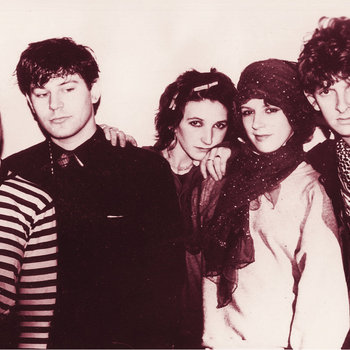

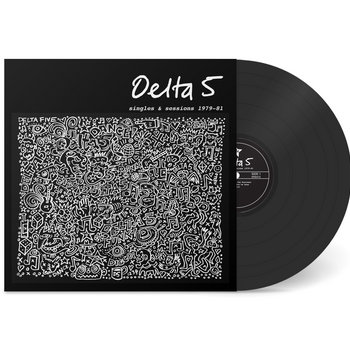
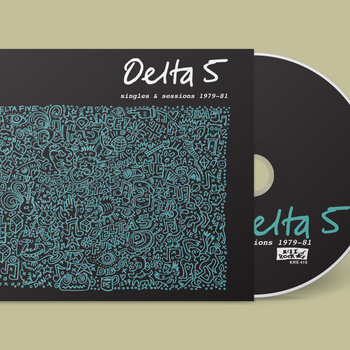

Vinyl LP, Compact Disc (CD)



“That whole post-punk era in England is just very influential for my playing and one of the reasons that I started playing guitar—that angularity, the terseness, and the physicality of playing. There’s something very percussive, whether it was The Fall or the Mekons or Delta 5 or the Au Pairs. They all just kind of existed in this wonderful world of post-punk. And it was very creative. It had an avant-garde feel to it. When I first would go on a tour with Sleater-Kinney, it was always reconnaissance missions. I would always be looking for these certain 7-inches, and Delta 5 was one of those bands. They have one full-length album, but mostly they just had this great series of singles. And then I believe, Kill Rock Stars put out a compilation of all of the singles, which is where this song is from.
“[With] a lot of these post-punk bands, especially Delta 5, there was a lot of repetition in the lyrics. She’s just saying, ‘Now that you’ve gone/ I find it hard to go on,’ and it’s almost like a meditation. The more she says it, the more it starts to have a different aura to it. It starts to kind of get menacing or it gets sad. It’s like this strange kind of exercise in repetition. And I love that about Delta 5. I love the bass and guitar. I love the vocals. This is just a band I return to a lot. I love putting them on, like a mix for someone or playlist. And, yeah, I’m always excited to see when their songs are available because they are a little bit of a rarity.”
black midi
“Eat Men Eat”
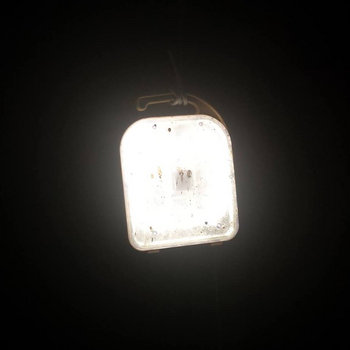
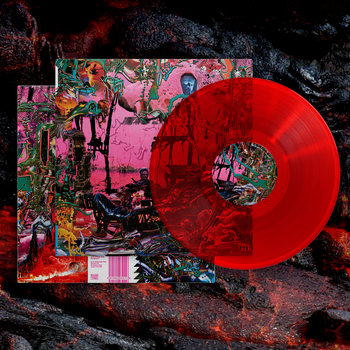


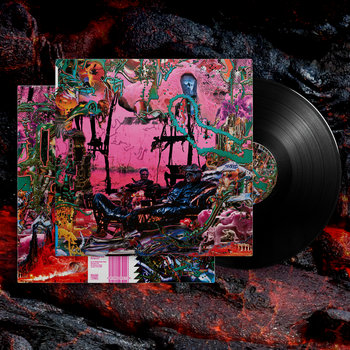



Vinyl LP, Cassette, Compact Disc (CD)




“I always like to seek out new bands. Just to be always looking backwards is a losing proposition so I’m always checking out bands that are around today. Black midi have a very cool vibe, there’s some great guitar stuff and very cool vocals. To me, they sometimes conjure things that are a little industrial, a little like a Minutemen vibe where there’s this chaos that keeps creeping into their songs and then they sort of straighten up. I really like that about a good punk band. It’s a little math-y, I guess, and clever but not clever for its own sake. But it has this kind of humor to it and is very dark and intense. Anyway, I really like those guys.”
Selda
“Yaylalar”
“Selda is a Turkish singer and she came up during early ’70s folk music doing Turkish and traditional folk, but she also dipped her toe into psych rock. That is where I just absolutely fell in love with her, when a lot of people started reissuing her stuff. I mean, she was always popular in Turkey. She’s an incredible guitar player. She plays these serpentine single-string guitar leads. And she’s a protest singer. So if you look at these lyrics translated, oftentimes they’re dealing with political issues of the time. She’s still around today, but, yeah, she has such a diverse catalog of songs where sometimes she’s playing acoustic guitar, sometimes she’s playing more in traditional Turkish folk style. The psych rock stuff, to me, is some of the most exciting psych rock music. And of course, psychedelic rock was coming out of Asia and Europe and obviously America, too. But some of the European psych rock is just very exciting because they’re mixing traditional music from their country with these very kind of sick guitar tones. And there’s a strangeness that is very appealing to me.”
Pasteur Lappé
“Sanaga Calypso”
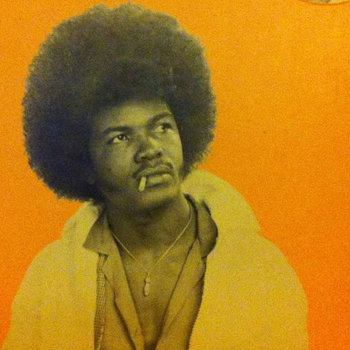


Vinyl LP

“The first time I heard the ‘Sanaga Calypso’ song, I actually thought it sounded like The Clash. I was like, ‘Those guys must have heard those songs.’ I can hear The Clash in this song, and The Clash is a band that Sleater-Kinney is always thinking about. We love a lot of their records, whether it’s like Sandinista…even though it’s mid-period, I love Combat Rock and I love where they’re going on that album and obviously, they’re borrowing a lot from reggae there. And when I hear Pasteur Lappé, I hear his influence on other bands that I love. He’s a Cameroonian artist and just very funky, cool riffs and vibe.”
J Mascis
“Can’t Believe We’re Here”






Compact Disc (CD), Vinyl LP, Cassette, T-Shirt/Shirt




“J is just one of those artists—a lot of people know him from Dinosaur Jr., but he has a very active solo career. He has an amazing guitar-playing style and he has this breezy, insouciant voice, but it’s also pained, which is a tough combination because usually when you get into that kind of tossed-off vocal styling it can be a little cold, it can feel a little too clever or a little too self-aware, or it’s almost too cerebral. But he can sort of do it in this way that it still feels like he’s hurting. Like there’s just this little strain in there. And I love that. He’s someone that sings really well with his guitar. It’s just this very seamless relationship between vocals and guitar. I’m always excited when he puts out a new single or a new album.”
The Particles
“Remington Rand”
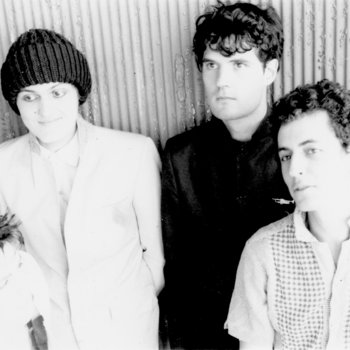

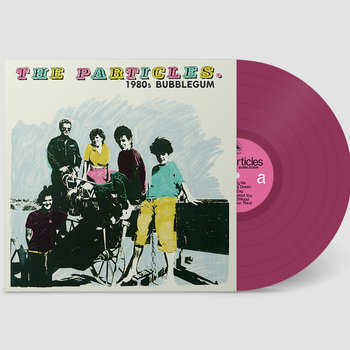
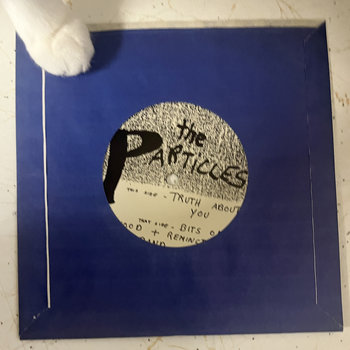



Vinyl LP, 2 x Vinyl LP




“So this is one of my most rare 7-inches and I’ve never seen it. I don’t think this band exists anywhere outside of Bandcamp, I’m not sure they’re anywhere else. When Corin and I were forming Sleater-Kinney, we strangely went to Australia. That’s where we recorded our first album. We wrested ourselves from Olympia and the insularity of that scene, and we just wanted to see ourselves in a different context and imagine something different and bigger for ourselves.
“So we went to the other side of the world and we made our first album. The first people we stayed with were Frances Gibson and Stephen O’Neil from a band called The Cannanes. They were an indie rock Australian band and had put out some music on K Records in Olympia. We stayed with them for a few weeks and Stephen played shows with us as our drummer. But Stephen said, ‘I used to be in this band called The Particles. I’ll give you some 7-inches.’ I remember listening to them and thinking, ‘This is what I’ve been waiting to hear.’ Because it comes full circle from Delta 5 and all that great post-punk in Britain, because, of course, post-punk was happening in New Zealand and Australia. And it sounds exactly how you would imagine, like the British stuff but even weirder and sort of more oddball. And I love it. It has that wonderful Australian sensibility, which is literary, but not taking itself as seriously as a literary-minded English band would. So there’s just this humility. I think that especially post-punk had humility, but Australian post-punk definitely had a [sense of] humility, and there’s this sly humor to it. But the music is very catchy.
“I remember Stephen telling me that you would call in, the way that operators used to work, and you would call Remington Rand and they would connect you. The lyrics are like, ‘I need a taxi out of here.’ And she is on the phone, but she says, ‘But I’m hung up on Remington Rand.’ They’re very absurdist. I’m sure Remington Rand just sang well. And actually, after I picked this song, I ended up purchasing the full-length album, which is a compilation of songs I don’t have from The Particles. And I ended up buying it yesterday from Bandcamp.”
[Ed. note: A Remington Rand was an early UNIVAC computer system. The song is from 1981 and the opening lyrics are, “Just spoke to your computer/ To get a taxi out of here/ She didn’t answer my questions/ She kept saying the wrong thing/ She had a nice speaking voice.”]







